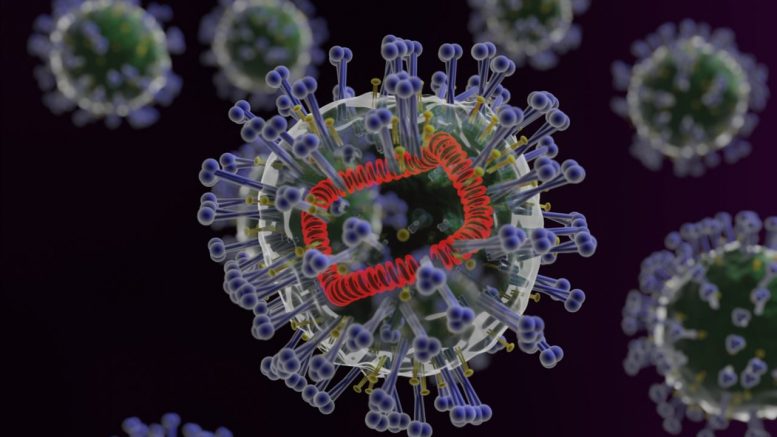Chief-Exec News Bites
UK's Starmer seeks fresh start with China as Trump shakes up global relations
British Prime Minister Keir Starmer told Chinese President Xi Jinping on Thursday that he wanted to build a "sophisticated relationship" with Beijing to boost the UK economy, signalling a reset after years of strained ties. On the key day of his four-day visit to China, the first by a British prime minister in eight years, Starmer held an 80-minute summit with Xi at the Great Hall of the People before they lunched together. Starmer said the pair chatted about football and Shakespeare, as well as business matters. The British leader will also meet Premier Li Qiang. Starmer, whose centre-left Labour Party government has struggled to deliver the growth it promised, has made improving relations with the world's second-largest economy a priority, despite lingering misgivings about espionage and human rights. "China is a vital player on the global stage, and it's vital that we build a more sophisticated relationship where we can identify opportunities to collaborate, but of course, also allow a meaningful dialogue on areas where we disagree," Starmer said. France 24, January 29
Intelligence-sharing deal to halt Chinese engine use in small boats
Britain will share intelligence with China for the first time in a bid to stop Chinese engines and dinghies being used to ferry migrants across the Channel. Sir Keir Starmer is expected to strike a law-enforcement agreement with President Xi and the country’s premier, Li Qiang, on Thursday during his visit to Beijing. More than 60 per cent of all engines used by smuggling gangs last year were found to be branded as Chinese-manufactured. The National Crime Agency has said that almost all engines used by smugglers tend to be cheap outboard motors that propel makeshift and unseaworthy dinghies. Under the agreement, the NCA and Border Force will work with the Chinese authorities to prevent small boat engines and equipment used in Channel crossings from being obtained by people smugglers. They will share intelligence with China about the smugglers’ supply routes to enable the Chinese border authorities to launch raids and seize the equipment before it leaves the country. The Times, January 28
Food sector calls for transition period if UK and EU agree post-Brexit rules reset
British food sector representatives have urged the government to introduce a transition period if it agrees to realign post-Brexit agriculture rules with the EU. They warned that aligning regulations overnight would create a “cliff edge” that could cost UK businesses between £500m and £810m a year, because of the divergence in standards since Brexit. David Bench, chief executive of Croplife, a trade organisation that represents the agrichemical sector, said: “If we do not have a transition period, it would have very damaging consequences”. The warning comes days after the president of the National Farmers’ Union said that British oats used in cereals, snack bars, meatballs and veggie burgers could be rendered unsellable in the EU, because British farmers for the past five years have been allowed to use certain fungicides not yet approved by the EU. The point of the UK-EU reset is to remove the barriers that have led thousands of businesses to stop exporting to the EU, and to reduce supermarket prices. The Guardian, January 29
Cuba has ‘15 to 20 days’ of oil left as Trump turns the screws
Cuba only has enough oil to last 15 to 20 days at current levels of demand and domestic production, according to data company Kpler, after its sole remaining supplier Mexico appeared to cancel a shipment while the US blocked deliveries from Venezuela. Unless deliveries resume, Cuba could face sharp rationing, with much of the country already suffering near daily blackouts. While inventories have been lower at times in the recent past, US President Donald Trump has vowed to choke off oil to the communist island and said this week the regime was “very close to failing”. “They have a major crisis on their hands” if more deliveries do not arrive in the coming weeks, said Jorge Piñón, an oil expert at the University of Texas. Cuba has received just 84,900 barrels this year from a single Mexican shipment on January 9, according to consultancy Kpler. That is equivalent to just over 3,000 barrels per day (b/d), down from an average of 37,000 b/d from all suppliers in 2025. Financial Times, January 29
Amazon confirms 16,000 job cuts after accidental email
US technology giant Amazon has confirmed it will cut 16,000 jobs - hours after it told staff about a new round of global redundancies in an email apparently sent in error. The email, which has been seen by the BBC, was sent late on Tuesday and refers to a swathe of employees in the US, Canada and Costa Rica having been laid off as part of an effort to "strengthen the company". The message was apparently shared by mistake, as it was quickly cancelled. Early on Wednesday, Amazon announced job reductions as part of a plan to "remove bureaucracy" at the firm. Beth Galetti, senior vice president of people experience and technology at Amazon, said on Wednesday it was not planning to make "broad reductions every few months", referring to Amazon's announcement of 14,000 corporate job cuts in October. "While many teams finalized their organizational changes in October, other teams did not complete that work until now," she said. Amazon employs around 1.5 million people globally, with around 350,000 in corporate roles. Amazon has not said where the latest job losses will fall or which countries will be affected. BBC news, January 28
Syrian leader to meet Putin, Russia seeks deal on military bases
Syrian President Ahmed al-Sharaa will meet Russian counterpart Vladimir Putin in Moscow on Wednesday, as the Kremlin seeks to secure the future of its military bases in the country. Putin and Sharaa struck a conciliatory tone at their previous meeting in October, their first since Sharaa's rebel forces toppled Moscow-ally Bashar al-Assad in 2024. But Russia's continued sheltering of Assad and his wife since their ouster remains a thorny issue. Sharaa has repeatedly pushed Russia for their extradition. Sharaa, meanwhile, has embraced US President Donald Trump, who on Tuesday praised the Syrian leader as "highly respected" and said things were "working out very well". Putin, whose influence in the Middle East has waned since Assad's ousting, is seeking to maintain Russia's military footprint in the region. France 24, January 28
Keir Starmer insists he will take ‘pragmatic’ approach during Beijing trip
Sir Keir Starmer arrived in China on Wednesday insisting that he could handle sensitive issues on the visit - including human rights - while avoiding upsetting the US, declaring he was “a British pragmatist applying common sense”. On a four-day visit overshadowed by concerns about a Chinese spy threat, the UK prime minister’s team has taken burner phones on the trip. Starmer insisted that there was no evidence that Downing Street had been hacked during his time as prime minister. “No, there’s no evidence of that,” he said. “We’ve got robust schemes, security measures in place as you’d expect.” Last week, Starmer’s government gave permission for China to build a new embassy near the City of London - despite Conservative claims it could be a “spy hub” - clearing the way for what the prime minister argues will be an important resetting of relations with Beijing. Financial Times, January 28
Trump clashes with NRA and says Pretti shouldn’t have carried gun
President Donald Trump has contradicted gun rights groups and his deputy chief of staff as he grapples to control the narrative after the killing of a nurse in Minneapolis. Asked on Tuesday if he agreed with Stephen Miller’s assessment that Alex Pretti, the armed protester shot dead by immigration officers on Saturday, was an “assassin”, Trump told reporters: “No, I don’t think so.” “With that being said, you know, you can’t have guns. You can’t walk in [to a protest] with guns. You just can’t,” he added. Pressed on the Second Amendment, advocates for which have supported Pretti’s legal right to carry a gun during demonstrations, Trump repeated that “you can’t walk in with guns”. “I don’t like that he had a gun. I don’t like that he had two fully-loaded magazines. That’s a lot of bad stuff,” he added. The National Rifle Association has described similar comments made by White House officials as “dangerous and wrong”. The NRA, an influential conservative backer of the Republican Party, has previously said that “responsible public voices should be awaiting a full investigation”. The Times, January 28
Rwanda seeks £100m from UK over axed asylum deal
The Rwandan government is claiming it is owed £100m by the UK over payments due under an asylum agreement cancelled by Prime Minister Sir Keir Starmer. Rwanda has filed an international arbitration case, arguing the UK has breached the terms of the deal to send some asylum seekers to the east African nation. Under the deal, which was signed by the previous Conservative government, the UK agreed to make payments to Rwanda to host asylum seekers who had arrived illegally in Britain. In a statement, Rwanda's government said it had decided to pursue claims in arbitration after facing the UK's "intransigence on these issues". A Home Office spokesperson said: "The previous government's Rwanda policy wasted vast sums of taxpayer time and money. "We will robustly defend our position to protect British taxpayers." The Rwandan government's statement said it was making three claims in relation to the Migration and Economic Development Partnership, which was signed in 2022 when Boris Johnson was prime minister. The statement accuses the UK of breaching the deal by setting out the financial terms of the agreement publicly, failing to make payments totalling £100m, and "refusing to make arrangements to resettle vulnerable refugees from Rwanda". BBC news, January 28
England’s most deprived areas to get worse by next election, report for No 10 finds
The country’s most deprived neighbourhoods will have higher crime rates and worse unemployment by the end of the parliament, according to a report written at the request of No 10. The forecasts from the Independent Commission on Neighbourhoods show crime rates and unemployment will rise until the next election in England’s 613 most deprived neighbourhoods, despite the government’s promises to invest in local communities. The report’s authors warn the extra money ministers have pumped in is not enough to counteract longer-term trends such as the increase in antisocial behaviour and the problems facing the retail and hospitality sectors. The Guardian, January 28
Kitney’s Column
April 23, 2024
Britain is hurting. Who will fix Brexit?
January 28, 2024
Political manoeuvres
October 5, 2023
Battling for Australia’s hearts and minds
June 19, 2023
Brexit: when rhetoric finally faced facts
Richie’s Column
October 16, 2023
A sea change in the UK is on the political horizon
April 4, 2023
Only a mug makes predictions in Scottish politics
January 16, 2023
Rishi Sunak’s Tory nightmare
October 21, 2022
It’s all Brexit’s fault!
May 30, 2022
Why is no-one talking about the high cost of Brexit?
Encipia: The Mechanics of Business
June 17, 2020
Covid conundrum: interact, produce, consume, or infect
There are early signs to suggest that a coronavirus and a steam engine have enough in common to provide a useful perspective for our economic well-being, writes Dr John Egan in part…


































